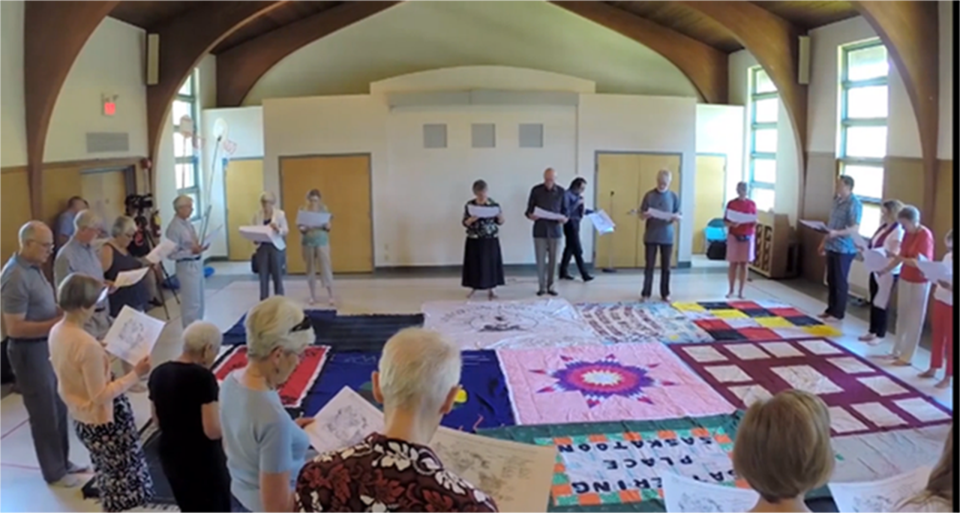Thirty adults are gathered in a large sunny room. We stand on blankets that represent the land. Turtle Island. Home. We are all Indigenous people whose ancestors have lived on this land for thousands of years, and we are about to experience colonization. The workshop facilitator puts on a bowler hat and becomes the European who has just “discovered” our lands.
Welcome to the Blanket Exercise, a powerful teaching tool developed by Kairos Canada, an ecumenical group working together for justice and peace. The exercise was their response to the 1996 Report of the Royal Commission on Aboriginal Peoples, which recommended education in Canadian-Indigenous history as one of the key steps to reconciliation. Over the past few years, I’ve informed myself about the history of the Settler relationship with Aboriginal people, a history we’re rarely taught. I read the Truth and Reconciliation Commission Report, the Indian Act, and
countless books.
But it wasn’t until I participated in the Blanket Exercise that this became more than intellectual knowledge, and I began to appreciate how challenging and necessary is this process we are calling reconciliation. Last fall, I took a training course in The Blanket Exercise so I could help lead the workshop. Members of the Squamish Nation will be guiding us through this interactive experience.
Not everyone likes the word reconciliation, by the way. Some prefer “healing” or “restitution.” Whatever we call it, this is the work that is necessary to right the wrongs of the past and move together into the future. It won’t be easy, but it will help us to live up to the promise of Canada as a country of diversity, inclusiveness and fairness.
The Blanket Exercise is the first of several educational and cultural events in the series I am calling Knowing Our Place: A Reconciliation Initiative on Bowen. In my Undercurrent article two weeks ago, I outlined some of the other events, which include Indigenous storytelling, Squamish language games, and a bus tour to Squamish for a cultural tour of the Squamish Estuary.
Knowing Our Place is made possible by the generous contributions of the Bowen Island Arts Council, the Bowen Island Library, the Knick Knack Nook, Bowen Children’s Centre, and Literacy Task Group. Last week, Lisbeth Haigh of the Bowen Island Montessori School contacted me to say they would also like to get involved. Anyone else?
You are invited to participate in The Blanket Exercise. Sunday April 30 from 2 – 5 p.m. in the Gallery at Artisan Square. For adults and youth over the age of 13. Not suitable for young children. Participation is free but you must register, and register early as there is limited capacity. To register, please contact Marysia, BIAC Program Coordinator at: [email protected]
If you have any questions, please feel free to contact me at: [email protected]
There is also more information and a video about the Blanket Exercise at: www.kairosblanketexercise.org
The Blanket Exercise. It’s more than just a history lesson. You get to live it.
Pauline Le Bel is the author of Becoming Intimate with the Earth. Two of her books will be published this year: her poetry book, They Ask Me Why I Sing So Loud, in May, and her non-fiction book, Whale in the Door: Re-Imagining Howe Sound, in September.



